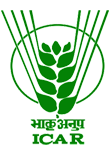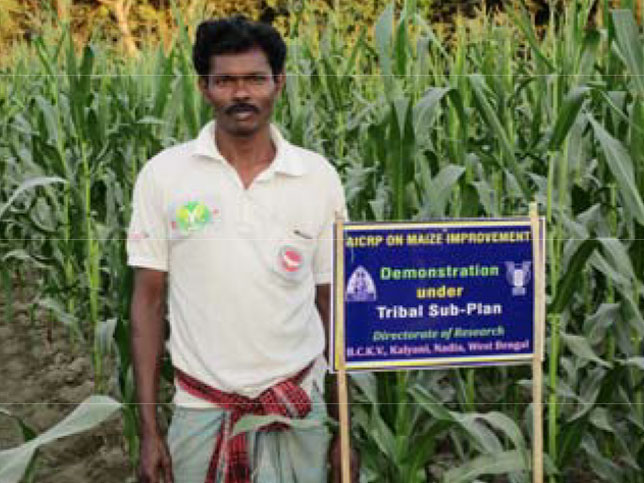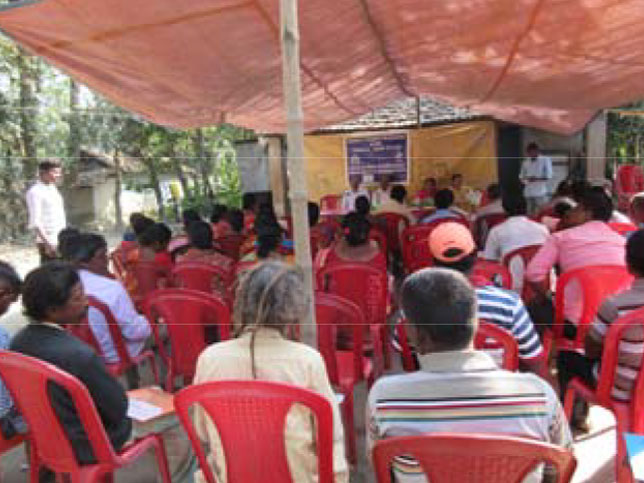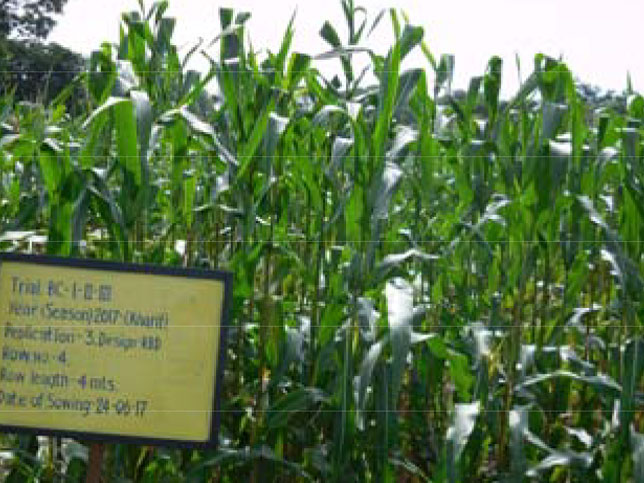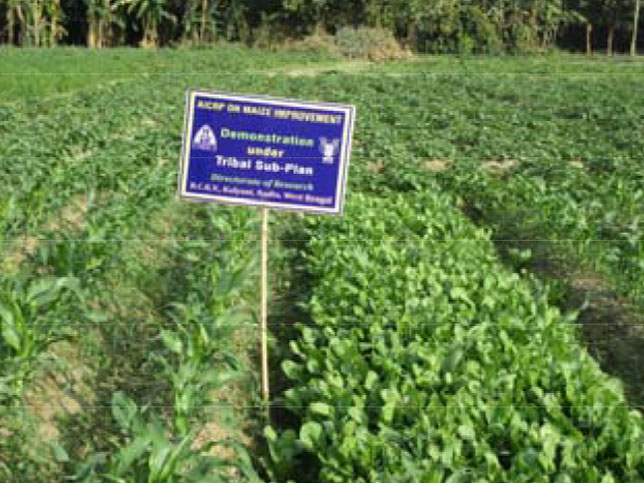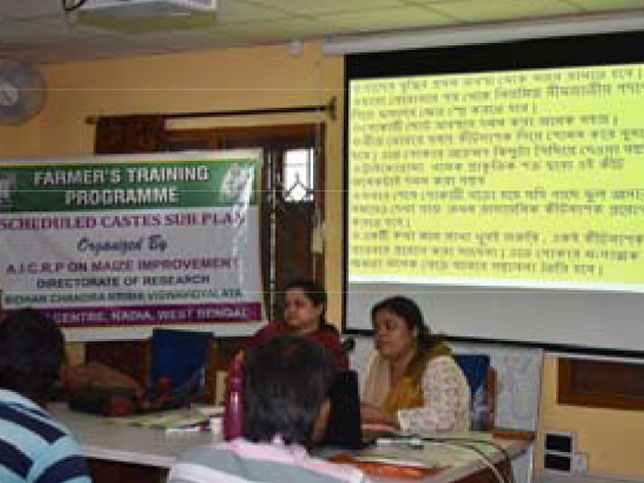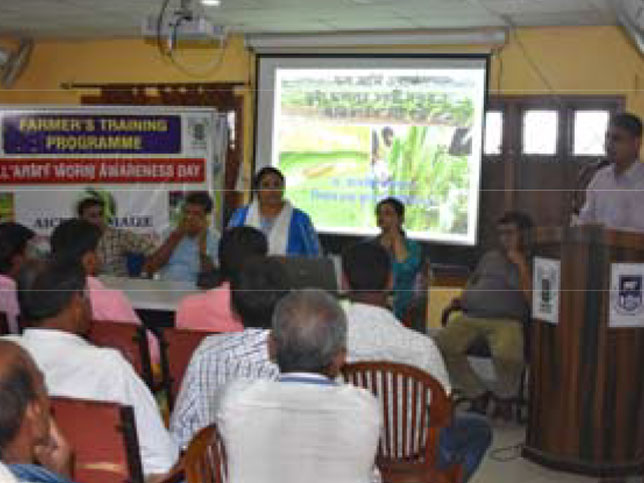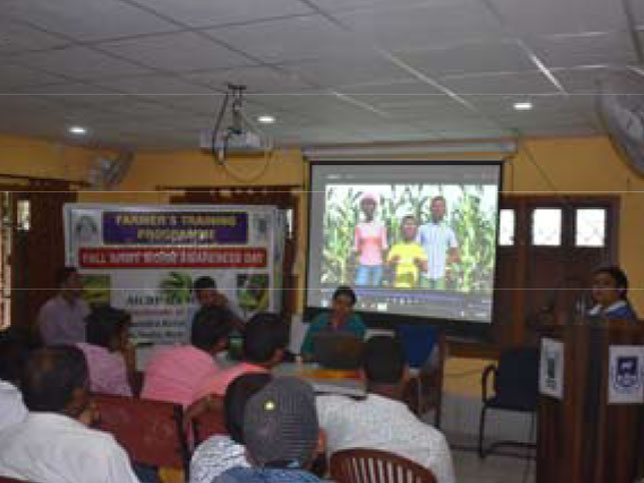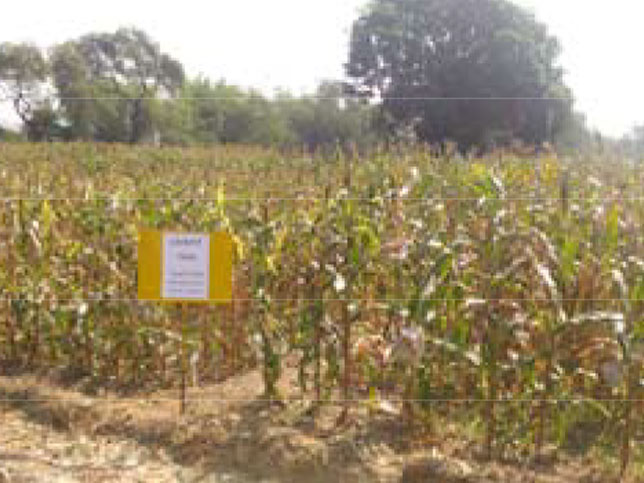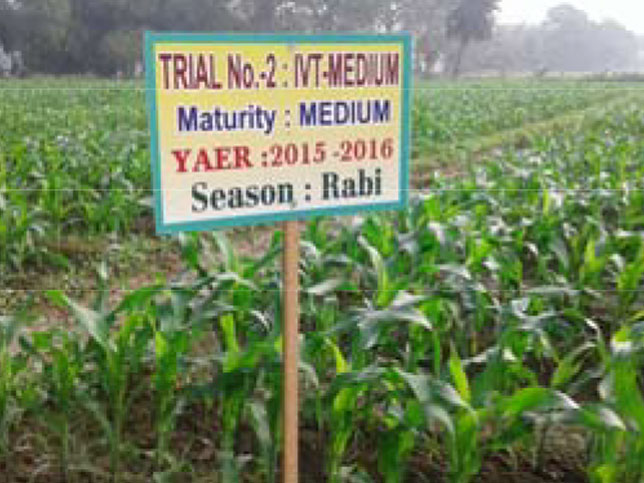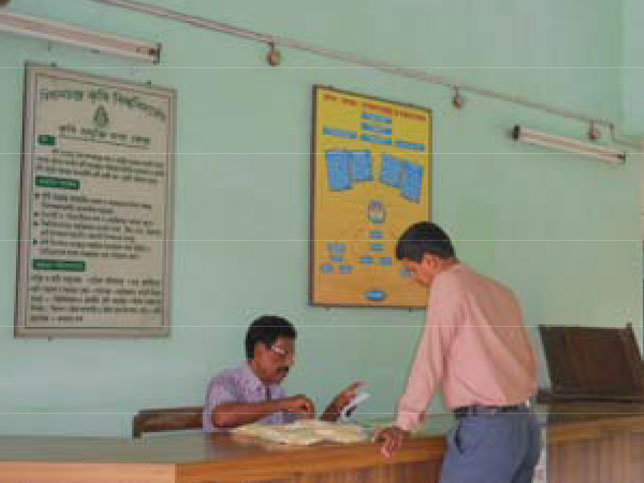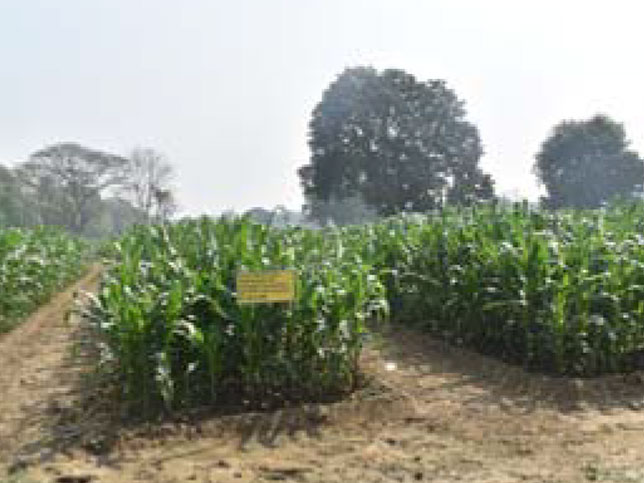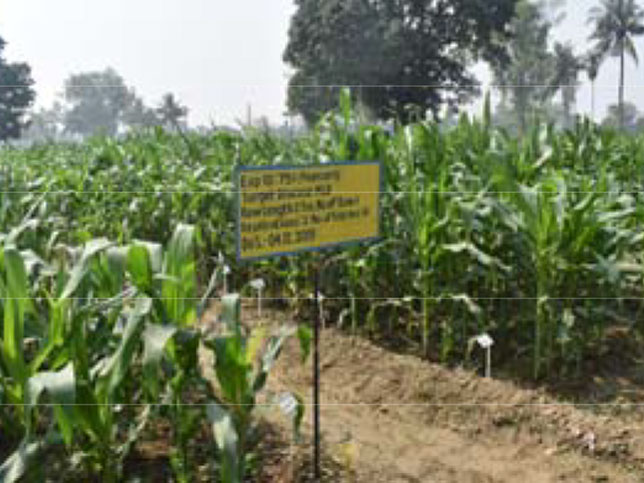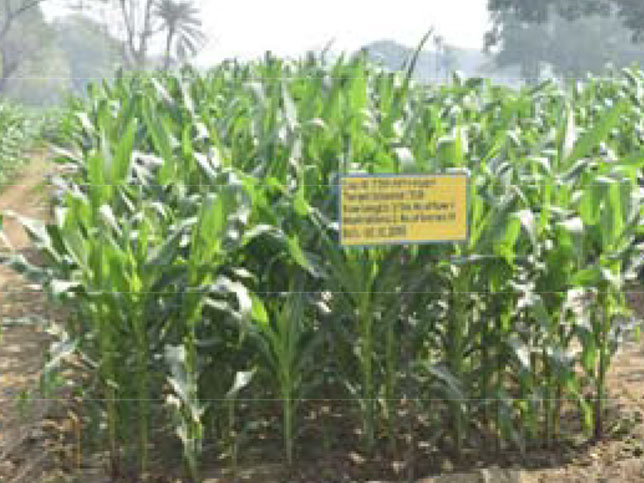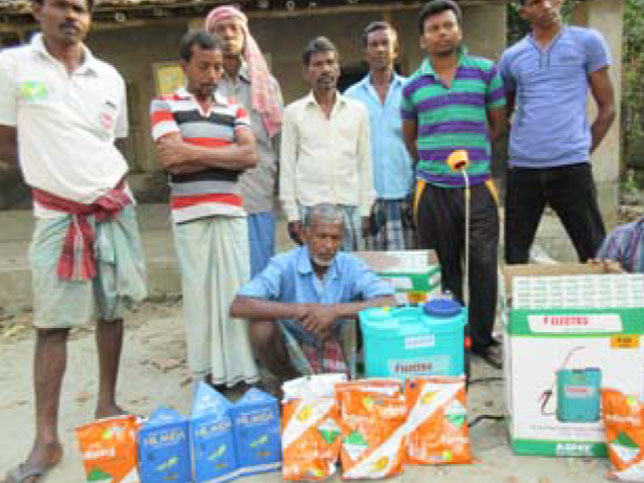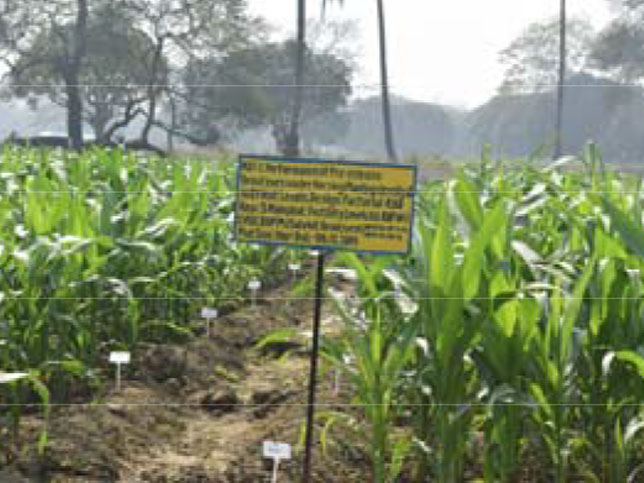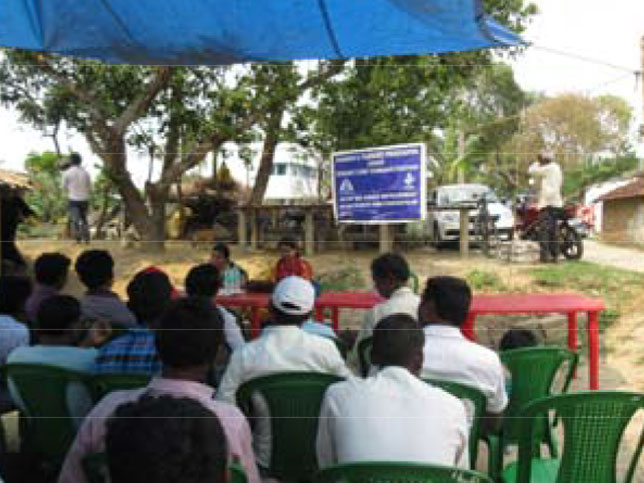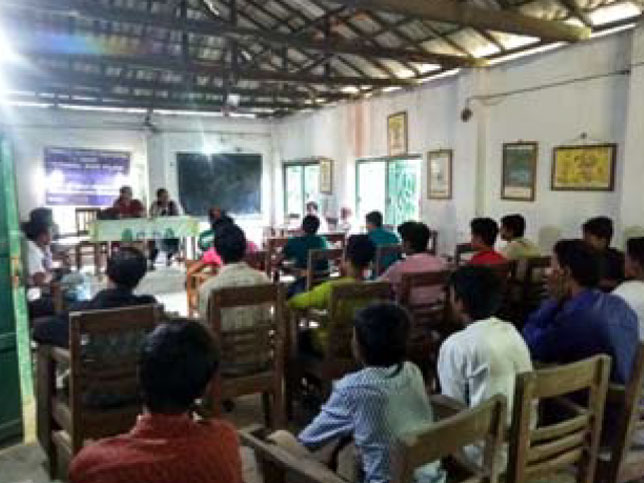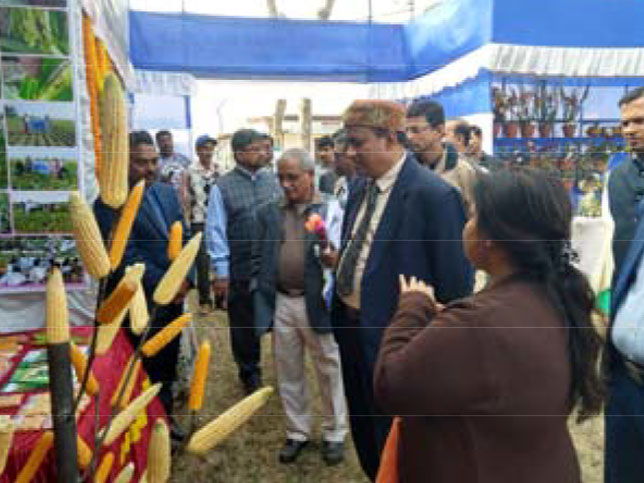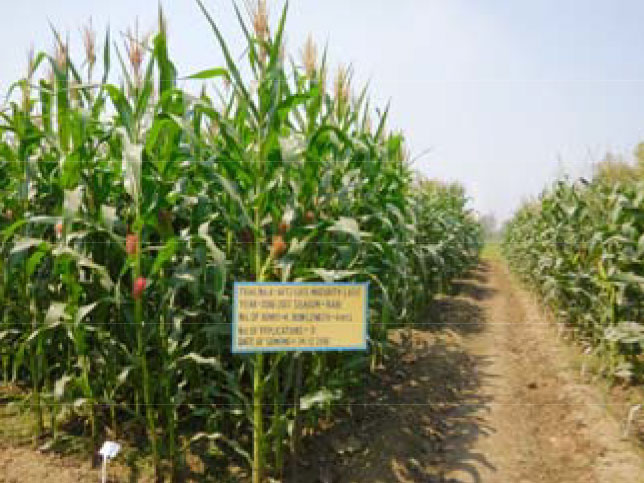Format E (Information from centre)
Name of centre (Latitude/Longitude): Kalyani, West Bengal (22º57´N /88º20´E) Date of Inception of AICRP – 04/11/2015
Address: Directorate of Research Building, Bidhan Chandra Krishi Viswavidyalaya, Kalyani, Nadia, West Bengal, 741235
Staff details
| Sr. no. | Name of the post | No. of posts | Name of the staff | Date of Joining | Filled/Vacant |
| 1. | Maize Breeder | 1 | – | – | Vacant |
| 2. | Maize Agronomist | 1 | Dr. Sonali Biswas | 2.11.2015 | Filed |
| 2. | Maize Pathologist | 1 | Dr. Srabani Debnath (Officer In-Charge of the Project wef 13/06/2016) | 4.11.2015 | Filed-2 |
| 3. | Field Men | 3 | 1. Field Assistant Mr. Manik Paul 2. Field Assistant – Mr. Benupada Maity 3. Vacant | 02/04/18 02/04/18 | Filed-2 Vacant-1 |
| 4. | LDC/Typist | 1 | Mr. Suman Sarkar | 02/04/18 | Filed |
Mandate
1. Evaluation and identification of suitable hybrids for normal and specialty maize suitable for rabi season.
2. Development of package practices for normal and specialty maize during rabi season.
Farm area: 1.5 ha
Significant achievements (in bullets with photos)
Varieties Identified (both normal maize & speciality corn) – performing good for this zone
Baby Corn BVM‐2,PAC 321
Pop Corn IHPC‐1201, IMHP 1535
Sweet Corn Mithas, FSCH 98, Sugar Sweet
QPM ‐ IIMRQPMH 1608, HQPM 7
Normal Maize ‐JH 13347,BL 147,CP 808,
HM 10, DKC 9165,BLH 101
Technical achievements
- Weed management in maize system‐ Developed
- Potassium dose for maize in West Bengal to increase yield is standardized
- Survey on diseases of maize in nine maize growing Districts of West Bengal is covered & important disease problems are identified
- Amount of Yield Loss due to Maydis Leaf blight (MLB) of maize is determined (21.45%)
- Ecofriendly strategies of management of MLB disease of maize are identified
- Development of IDM module for MLB of maize is completed for two years
- Disease screening under AICRP trials against TLB is going on.
- SAWBO animation is made in Bengali language about Scouting & Identification of FAW for the maize growers of West Bengal
Outreach & Extension – achievements
- Front Line Demonstration & Tribal Sub Plan were conducted for three years(2017‐18, 2018‐19 & 2019‐20).
Area under FLD was 50 acre (each year) and under TSP was 5ha (each year) - Scheduled Caste Sub Plan was conducted during 2018‐19.Fertilizer and sprayer was distributed under Scheduled Caste Sub Plan (NICRA) among 100 farmers. Total no of farmers benefitted under
- FLD, TSP and SCSP are more than 400. Total 12 training programmes are conducted for the maize growers under outreach programmes.
- Publications : Eight(8) in peer reviewed Journals. Book Chapter – One
- TV programme conducted – Six in number
Information on state recommendations:
Disease management – State‐wise we may give predominant diseases and their control measures
Leaf Blight diseases (Turcicum leaf blight & Maydis leaf blight)‐ Control measures –
i) Mancozeb75%WP @1.5‐2kg/ha
ii) Azoxystrobin 18.2% + Difenconazole 11.4%SC @1ml/li of water
iii) Tebuconazole 50%+Trifloxystrobin 25%WG @ 350ml/ha
iv) Azoxystrobin18.2% + Cyproconazole7.3% SC @ 1ml/li of water
v) Pyraclostrobin 133g/li + Epoxystrobin 50g/li SE @ 750ml/ha
Seedling blight : Control measure‐ Seed treatment with Thiram @ 2gm/kg seed
Fusarium wilt by Fusarium moniliforme : Control – Seed treatment with Trichoderma
harzianum @ 20gm/kg of seed
Pest management – State‐wise we may give predominant pests and their control measures
Predominant pests are – Stem borer, Shoot fly, Thrips, Aphid and Fall Army Worm
Control measures :
i) Carbofuran 3% CG @ 33300gm/ha
ii) Dimethoate 30% EC 660ml/ha
Seed treatment for early season sucking pest –
i) Thiamethoxam 30% FS @ 8ml/kg seed
ii) Imidacloprid 48% (600FS) @ 1ml/100kg seed
iii) Cyantraniliprole 19.8% + Thiamethoxam 19.8%Fs @ 4ml/kg seed
For Fall Army Worm – Application of Neem products ,Emamectin Benzoate & Chlorantraniliprole 18.5% SC in addition with cultural control measures.
Agronomic recommendations
Fertilizer : For hill & terai soil – Dolomite @ 1‐2 t/ha
For coastal soil – Gypsum @ 3‐5q/ha
FYM for all soil @ 5t/ha & Azophos @ 15kg/ha
N:P2O5:K2O = Composite varieties : Prekharif – 130:65:65 for soil having low nutrient
level, 120:60:60 for soil having medium nutrient level,100:50:50 for soil having high nutrient level.
Rabi – 130:65:65 ‐ for soil having low nutrient level, 120:60:60 for soil having medium nutrient level,100:50:50 for soil having high nutrient level.
Hybrid Varieties : 150:75:75 for soil having low nutrient level, 140:70:70 for soil having medium nutrient level,120:60:60 for soil having high nutrient level.
1/3rd N, full P2O5 and 1/3rd K2O as basal; 1/3rd N and 1/3rd K2O at 30 DAS and rest N and K2O at 45 DAS.
Sulphur @ 20kg/ha at land preparation, Zn as Zinc Sulphate @ 25kg/ha and Boron as Borax @ 10kg/ha at the time of land preparation.
Herbicide : For both broad leaf weeds & grasses – Atrazine 50WP @ 1‐2 kg/ha(preemergence)
For grasses Paraquat Dichloride 24% SL @ 0.8‐2li/ha and Diuron 80% WP @ 1kg/ha
For broad leaf weeds – Sodium salt Technical (80% WP) @ 1.25kg/ha.(post‐emergence)
Information on Patents: Nil
Title of Patent:
Patent No.
Utility

